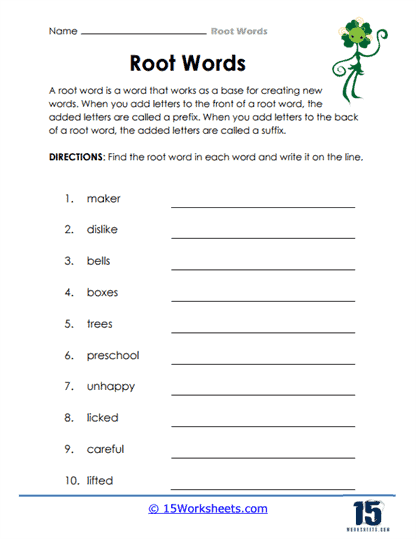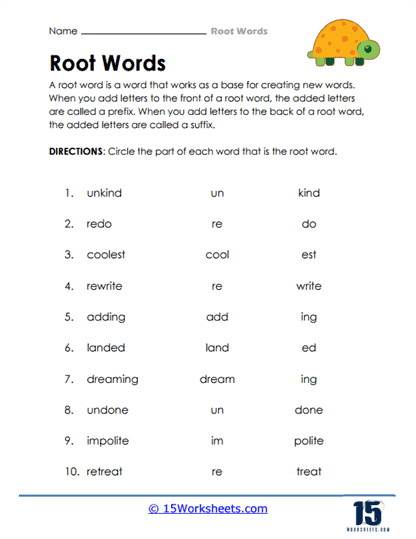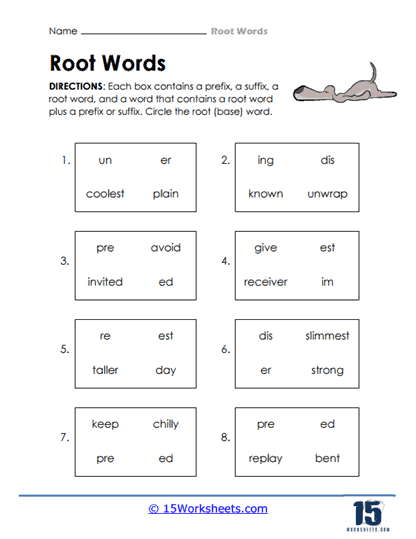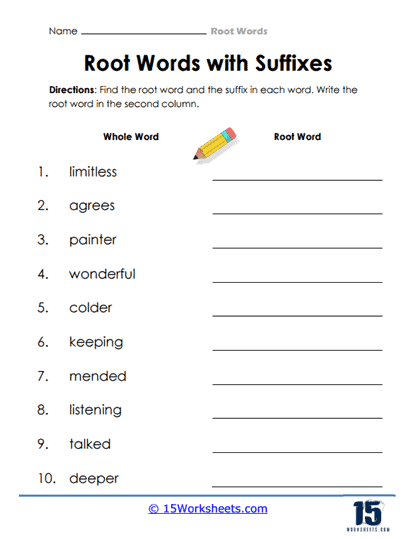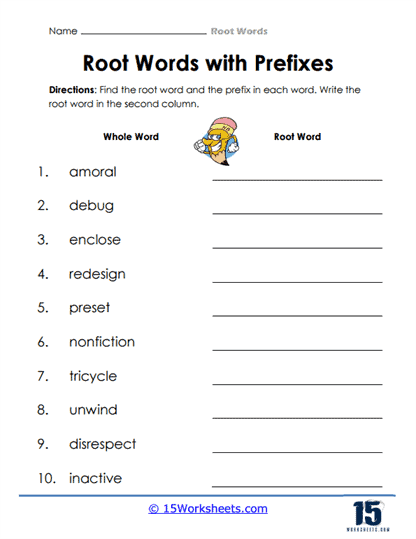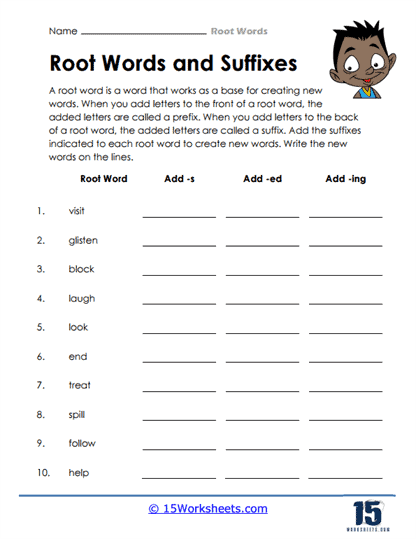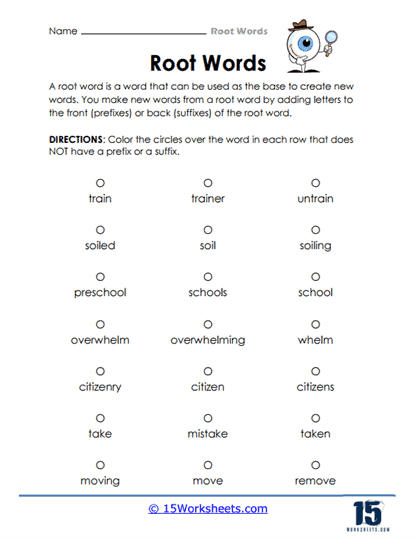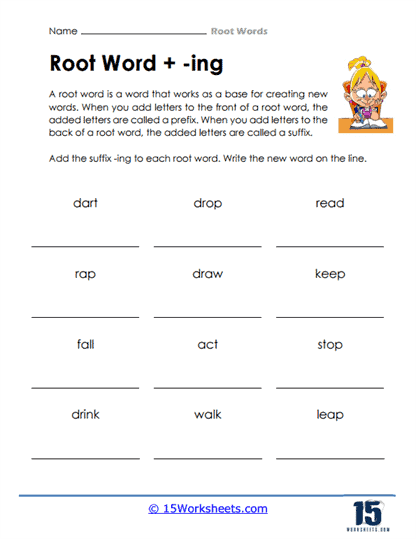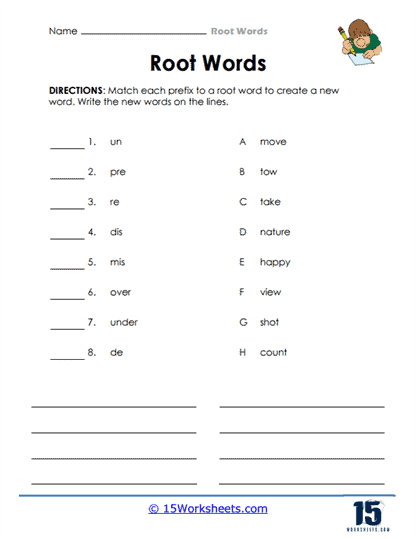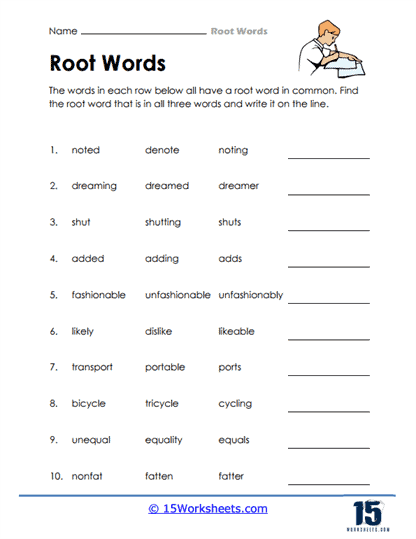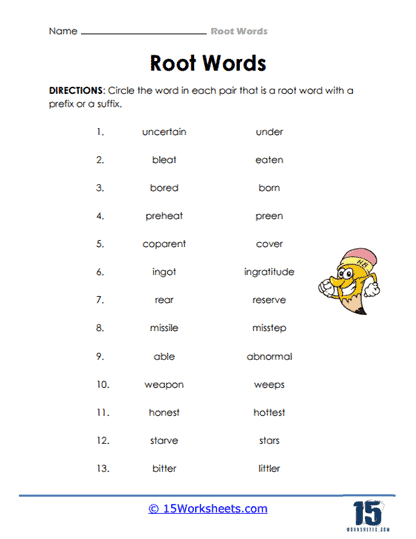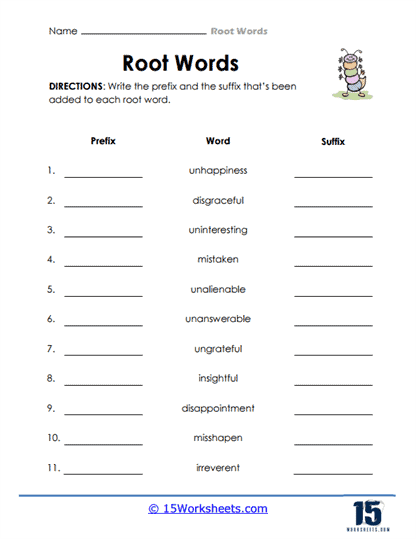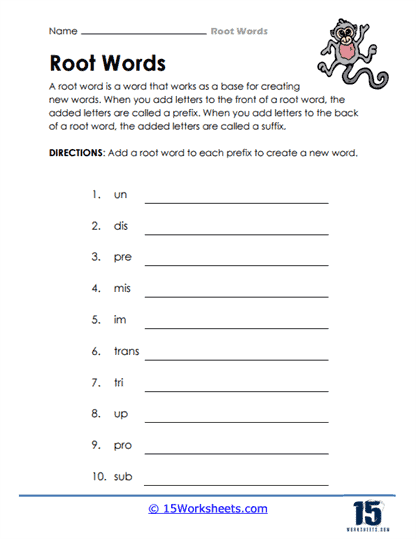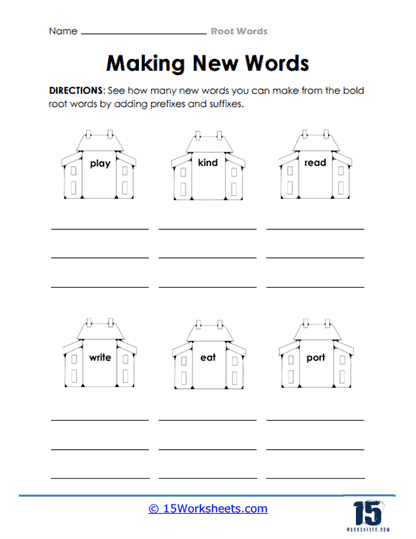Root Words Worksheets
All About These 15 Worksheets
This series of 15 worksheets on root words offers an engaging and comprehensive learning experience for students to discover and explore the fundamental building blocks of words. Through a variety of activities and exercises, students will enhance their vocabulary, improve their word recognition skills, and deepen their understanding of word formation.
They also promote critical thinking, linguistic analysis, and linguistic creativity. Students will gain valuable insights into the power and versatility of root words in language. By completing these worksheets, students will:
- Identify the root words in the given lists of words;
- Add various suffixes to root words to create new words;
- Determine when words have prefixes or suffixes and when they do not;
- Match the prefixes correctly to their corresponding words;
- And make as much new words as they can by adding prefixes and suffixes to words.
These worksheets on root words provide students with a solid foundation in vocabulary acquisition, linguistic analysis, and word formation. By exploring the components and patterns of words, students develop critical thinking skills, strengthen their vocabulary skills, and gain a deeper appreciation for the intricacies of language. Overall, this series of worksheets fosters an understanding of word relationships, enhances linguistic creativity, and empowers students to decipher unfamiliar words based on their root forms.
What are Root Words?
Root words are the most basic, foundational forms of words from which other words are derived by adding prefixes, suffixes, or other modifications. A root word carries the core meaning of a word and cannot be reduced or broken down further into smaller components. Root words often come from ancient languages such as Latin, Greek, or Old English, and they serve as building blocks for creating new words in modern languages, including English. Understanding root words is important for several reasons:
Vocabulary Enhancement
Recognizing the root words in complex or unfamiliar words can help you deduce their meanings, making it easier to expand your vocabulary and improve your understanding of related words.
Language Learning
When learning a new language, knowing common root words can help you identify the meanings of unfamiliar words and memorize new vocabulary more easily. This is particularly useful for languages that share similar roots, such as the Romance languages, which are derived from Latin.
Word Formation
Understanding root words can help you recognize and use the various processes of word formation, such as compounding, derivation, and inflection. This knowledge can improve your overall language skills, including reading comprehension, writing, and communication.
Etymology
Studying root words can provide insights into the origins, history, and development of words and languages, fostering a deeper understanding of and appreciation for language and culture.
Spelling and Pronunciation
Familiarity with root words can help improve your spelling and pronunciation of complex or unfamiliar words, as you can identify the underlying structure and patterns within them.
In summary, root words are fundamental components of words that carry the core meaning. They play a crucial role in language development, vocabulary enhancement, and language learning. Understanding root words can improve various language skills, such as reading comprehension, writing, communication, spelling, and pronunciation, while also providing insights into the history and development of languages and cultures.

